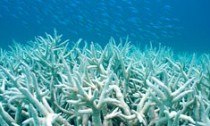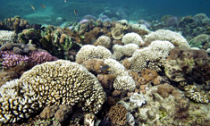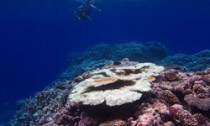
In the azure waters of the Red Sea, Maoz Fine and his team dive to study what may be the planet’s most unique coral: one that can survive global warming, at least for now.
The corals, striking in their red, orange and green colours, grow on tables some eight metres (26 feet) underwater, put there by the Israeli scientists to unlock their secrets to survival.
They are of the same species that grows elsewhere in the northern Red Sea and are resistant to high temperatures.
Fine’s team dives in scuba gear to monitor the corals, taking notes on water-resistant pads.
“We’re looking here at a population of corals on a reef that is very resilient to high temperature changes, and is most likely going to be the last to survive in a world undergoing very significant warming and acidification of sea w...
Read More









Social Profiles